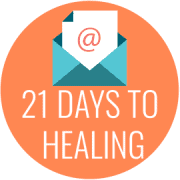Understanding trauma’s complexity will help your healing journey.
We forget that trauma is the “gift” that keeps on giving the sexual abuse survivor. And it’s not simple or easy to heal from. Triggers, panic attacks without warning, freezing when you should be fleeing–all these are symptoms of a greater problem. Longterm sexual violence often causes CPTSD, the C standing for Complex. As I researched for We Too, I came across an important resource in Bessel A. van der Kock who wrote The Body Keeps the Score.

Van der Kock elaborates why seemingly insignificant events may trigger the sufferer of trauma: “Long after a traumatic experience is over, it may be reactivated at the slightest hint of danger and mobilize disturbed brain circuits and secrete massive amounts of stress hormones. This precipitates unpleasant emotions intense physical sensations, and impulsive and aggressive actions. These post-traumatic reactions feel incomprehensible and overwhelming. Feeling out of control, survivors of trauma often begin to fear that they are damaged to the core and beyond redemption.”[1]
Complex PTSD can feel insurmountable. (Have you ever felt that pervasive fear that you’ll never heal? I certainly have). Especially when you’re ambushed by something you weren’t expecting.
What constitutes CPTSD? “The traumatic stress field has adopted the term ‘Complex Trauma’ to describe the experience of multiple and/or chronic and prolonged, developmentally adverse traumatic events, most often of an interpersonal nature (e.g., sexual or physical abuse, war, community violence) and early-life onset. These exposures often occur within the child’s caregiving system and include physical, emotional, and educational neglect and child maltreatment beginning in early childhood.”[2]
This is important for the church and its leaders to understand, particularly when ministering to those who have experienced abuse as children. Knowing the nuances and realities of CPTSD gives us empathy and understanding. So often survivors are judged for reactions they cannot control, or they’re dismissed as being too needy. One of the reasons I wrote the book was to offer this more accurate picture of how a sexual abuse survivor suffers. Instead of judgment, they deserve our admiration and respect for how much they’ve overcome just to live life and interact with others.
People with C-PTSD have a longer recovery and tend to trigger more readily when world events circle the drain. People with both PTSD and C-PTSD need not only our empathy, but also expertise. Many survivors have found solace with EMDR (Eye Movement Desensitization and Reprocessing) therapy—a practice that many Christian counselors practice.[3] Another effective therapy is TF-CBT (Trauma-Focused Cognitive Behavior Therapy).[4]
If you’re finding yourself stuck in your healing process, I would highly recommend talking over the nature of PTSD and C-PTSD with a trauma-informed therapist. And if you love someone who displays symptoms of trauma, listen well, pray often, and, as they ask for help, point them to some of the resources mentioned in this post.
[1] See: Bessel A. van der Kolk, The Body Keeps the Score: Brain, Mind, and Body in the Healing of Trauma
[2] “What is C-PTSD?,” Beauty After Bruises, https://www.beautyafterbruises.org/what-is-cptsd/
[3] For a cursory introduction, read https://www.focusonthefamily.com/family-q-and-a/life-challenges/eye-movement-desensitization-and-reprocessing.
[4] Here’s a basic tutorial on this type of therapy: https://tacomachristiancounseling.com/articles/benefits-trauma-focused-cognitive-behavior-therapy[[


